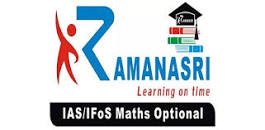
While many other subjects in the UPSC mains exam, mathematics is among the top scorers. The optional paper contains questions based on textbooks, but there is no case-study element. Graduates with a strong command of math will have no difficulty answering these questions. Mathematical reasoning is also a top-scoring subject in the mains exam. For more tips on achieving top scores in mathematics, read on.
Although Maths is not a compulsory subject for UPSC mains, it is a popular choice among engineering and science students. While the mathematics syllabus for IIT JEE is quite different from UPSC Mathematics, the marks scored by students in the exam are subjective and may require cramming. This is because B.Sc students have almost no left to study, while engineering graduates have completed the entire syllabus during college.
In addition to the mandatory syllabus for the UPSC mains, the mathematics optional paper is another hot topic. Mathematics is considered one of the toughest subjects, and many aspirants have taken it as an optional subject for the IAS exam. To score well in maths, you should practice as much as possible. Moreover, practicing past year questions is important, indicating future examination patterns and trends.
While Mathematics is optional, it is still a crucial subject for the UPSC mains examination. A strong understanding of the core principles of the subject and its practical applications is necessary for successful mathematics preparation. There are two branches of mathematics - applied mathematics and pure mathematics. Applied mathematics involves the active use of application of within and outside real-world problem solving like ODE, PDE, Matrices, Dynamics, Statics, Mechanics & Fluid Dynamics principles, etc., while pure mathematics deals with the concepts of modern algebra, Real Analysis. There is no limit to how much practice in mathematics can lead to higher marks in the exam.
Register Now
What are you waiting for ?

-Civil-Services-Guidance-Mentor-Teacher.jpg)